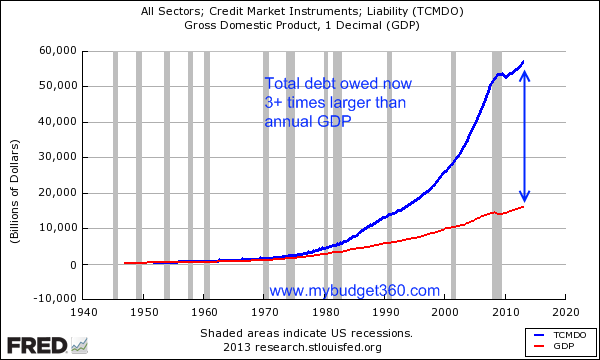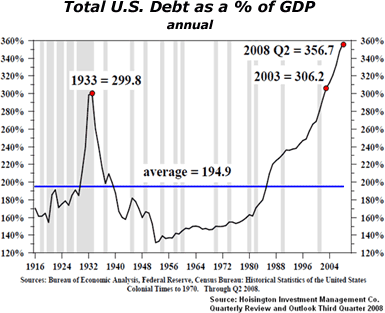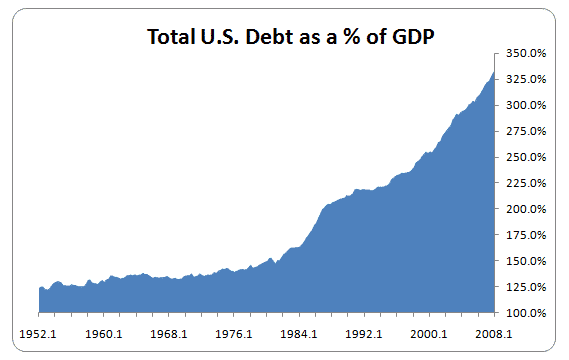About 'what is the united states national debt'|...debt in the United States is now over 16.... The exploding...of personal debt have ...hard to believe what is...
Written and edited by Howard Zinn and Anthony Arnove, Voices of a People's History of the United States is a companion piece to Zinn's best-selling A People's History of the United States: 1492-Present, a narrative of the country's history that was written, according to Zinn, "to awaken a greater consciousness of class conflict, racial injustice, sexual inequality and national arrogance." He uses brief excerpts from a wealth of sources to provide a more accurate and more complete picture of the country's past. In Voices of… Zinn and Arnove let the people speak for themselves at length through articles, letters, speeches, poems, interviews, reports, song lyrics, et al. Beginning with Columbus' "discovery" of America and the Arawak Indians and concluding with reactions to 9/11/01 and the War on Terror, many diverse voices of concerned citizens are on full display. Both books provide an alternative view of U.S. History through the words of those who weren't in the majority or in power, yet were compelled by their convictions to stand up, speak out and suffer the consequences for what they believed was right and just. Chapter one begins with the diary of Columbus, which has been partially quoted and partially summarized from a transcript that was discovered in 1790. It is contrasted with the writings of Bartolome de Las Casas, who witnessed the crimes committed against the people of Hispaniola and protested against their enslavement and genocide before the Spanish Royal Council. The book then moves to the colonies. A chapter about slaves includes their petitions to state legislatures requesting their freedom. The plight and anger of indentured servants is illustrated through reports of rioting in Exeter, New Hampshire, against the authorities that attempted to learn who chopped down trees for firewood, and also in Newport, Rhode Island, as 500 seamen revolted against their five-week impressments in the British Navy. In 1763, the French were defeated in the Seven Years' War and were no longer a threat in North America. The colonial leaders no longer needed British protection, but Britain needed the colonies' wealth to help pay the debt incurred fighting the war. This struggle led to the Revolutionary War. Boston became a focal point as evidenced by reaction to the Stamp Act, eyewitness testimony about the Boston Massacre and a participant's recollection of the Boston Tea Party. During the Civil War, Voices of… looks at the conflict between rich and poor on both sides rather than focus on the military struggle, which has been extensively covered elsewhere. Reports show 6,000 New Yorkers assaulting flour merchants, who were accused of hoarding to drive up prices while the south was suffering from bread riots due to the growing costs of the war. Both sides saw draft riots from people who didn't feel it was their fight. The Gilded Age saw the expansion of the country's commerce, industry and territory, but the majority of people didn't share in the gains. Many thousands died or were incapacitated from unsafe working conditions. As a result, workers went on strike and formed unions, which also cost people their lives. The employers and government used goons and soldiers to drive their position home, such as the Ludlow Massacre of 1914, which saw the Colorado National Guard fire machine guns into and set ablaze the tents of striking families. The mistreatment of the workers paved the way for figures like Mother Jones, an organizer for the United Mine Workers, Mary Elizabeth Lease, leader of the Populist movement, and Eugene Debs, leader of the Socialist Party and five-time candidate for President, to rise to national prominence. Workers have constantly had to battle with their employers for fair treatment, which is why the book offers a speech by Cesar Chavez from 1984 and a look at Decatur, Illinois during the mid-1990s when one in ten workers of the town were on strike or locked out. The treatment of fellow human beings is a major focus of the book. It is filled with voices speaking out against the injustice, unfairness and inequality that was witnessed against the slave, against women, against the Indian, against the worker, against blacks, against gays, against prisoners, against innocent civilians in enemy countries, against innocent civilians in this country and even against the environment. The other major focus of the book is the wars and expansion of the United States. In 1849, Frederick Douglas spoke out against the War with Mexico. Samuel Clemens was against the U.S. Expansion in the Philippines and wrote an essay in 1906 about the massacre that saw 600 Moros killed. In 1916 as the U.S. prepared to enter WWI, Helen Keller gave a speech calling for people to go on strike against war and the industries that supply it. Against the wishes of other civil rights leaders, Martin Luther King spoke out against Vietnam in 1967 because he saw a connection between the issues. Alex Molnar, founder of Military Families Support Network, wrote an open letter to President Bush I in 1990, wondering why Middle East policies of the previous decade caused him to send his son to Saudi Arabia. The parents of Greg Rodriguez, who died on September 11th while he was working in One World Trade Center, wrote a letter to the country, asking us not to respond by adding "to the inhumanity of our times." It is not surprising to find no protests of WWII, because everyone agreed on the evils of Nazism, but the book does provide interesting and insightful reflection on our actions. Admiral Gene Larocque, who survived Pearl Harbor, spoke with Studs Turkel about the glorification and sanitization of the war. Yuri Kochiyama writes about the conditions of the internment camp she was placed in. Yamaoka Michiko was 15 when she experienced the bombing of Hiroshima. The government provides the most amazing admission in the United States Strategic Bombing Survey, Summary Report (Pacific War) (1946) when they conclude, contrary to some historians and politicians, that Japan would have surrender without the dropping of the atomic bombs. Many former soldiers speak out about war and its horrors. Joseph Plumb Martin, who served in the Continental Army in New York and Connecticut, details in A Narrative of Some of the Adventures, Dangers and Sufferings of a Revolutionary Soldier (1830) the difficulties experienced by men on the front lines and after their service was completed; Col. Ethan Allen Hitchcock of the 3rd Infantry Regiment wrote in his diary (1845-46) about events during the War with Mexico that differed from the politicians' rhetoric back in D.C.; Marine Corps major general Smedley Butler, winner of two Congressional Medals of Honor, wrote about the military being used as "a high class muscle-man for Big Business" in War Is a Racket (1935); and Tim Predmore, a solider with the 101st Airborne Division, wrote "How Many More Must Die" about how he lost his faith in the effort while serving in Mosul, Iraq in 2003. Some writers used fiction because art can be more truthful than fact. In Johnny Got His Gun (1939) Dalton Trumbo writes from the point of view of Joe Bonham, a severely wounded WWI veteran who lost all his limbs and vision. Kurt Vonnegut relives the bombing of Dresden, Germany, where he had been held as a P.O.W. during WWII, in a selection from Slaughterhouse-Five (1965). In the chapter "The Man I Killed" from The Things They Carried (1990) Tim O'Brien creates a brilliantly written piece about a soldier dealing with the shock of seeing a Vietnamese soldier he shot in the head and the star-shaped hole that his bullet created. Poets and songwriters also used art to get their message across. e.e.cummings, who served in an ambulance group in France during WWI, wrote I sing of Olaf glad and big (1931) about a conscientious objector. Langston Hughes has two poems from Montage of a Dream Deferred (1951) about the racism blacks found upon returning from WWII. Maria Herrera-Sobek writes about the Chicano experience in Vietnam. Billie Holiday's "Strange Fruit" (1937) is a haunting tale about lynching. Bob Dylan rages against the politicians and elites "that never done nothin'/But build to destroy" in "Masters of War" (1963). Woody Guthrie's "This Land Is Your Land" (1940) appears although some may not recognize its lyrics because the fourth and sixth stanzas question whether "this land was made for you and me." Voices of… is an invaluable collection to those with an interest in history. It combines famous works from the likes of Thomas Paine, Henry David Thoreau, Upton Sinclair and John Steinbeck alongside lesser known yet no less important people who contributed to the dialogue of the nation. It is a marvelous resource that should always be kept on a shelf close by as a reminder of the hard work that is needed to keep the government and the country on a just course. A sentiment echoed in the book's final piece, Patti Smith's "People Have the Power"(1988). The majority of the voices are from on the left side of the political spectrum, which will immediately cause some to not listen, but that would be a mistake. This book provides a great opportunity to read people's actual words and opinions without them being twisted and spun through someone else's point of view. You might not agree with all the views that book contains, I know I didn't, but the ideals behind them are vital components that shaped the discussions, arguments and decisions that this country has made. A better understanding of them can only be beneficial to everyone in the country and the world. |
Image of what is the united states national debt
Related blog with what is the united states national debt
- ibloga.blogspot.com/...debt in the United States is now over 16... . The exploding...of personal debt have ...hard to believe what is...
- tbrickert.wordpress.com/...This is the most common measure of the national debt. Reflecting past annual deficits, it represents what must be borrowed through sales...
- houseofinfamy.blogspot.com/...19 The United States has the most ... national debt that the...and it is rapidly...on where/what this site...
- christiangunslinger.blogspot.com/... from AFP. Like what AFP is doing? Can’t...up now!” Repayment of the National Debt From: http://www.powerlineblog...There are 6 state Senate Republicans...
- tobyroberts.blogspot.com/... has to be given what’s called “national treatment” in Mexico, like...get national treatment in the United States, obviously. But the ...
- worthlesscrap.blogspot.com/...that the United States has...help with the earthquake... were lost...country. Our national debt is...…what ...
- chezodysseus.blogspot.com/...), it was still primarily a...such a person. BUT what We then see ...ominous shape in the United States as early as Clinton...
- comearmageddon.blogspot.com/... to come? And I suppose the overwhelming national debt doesn't affect the reich-wingers either. Is the $8.137 TRILLION DOLLAR defecit something that only we ...
- rougeknights.blogspot.com/... been meeting to study the ... what they ...either in the National ...Spirit in the uniting bond of peace...
- labourscandals.blogspot.com/... remark is articulating what I am now ... by the fact that there...blockade from the United States. American ...
What Is The United States National Debt - Blog Homepage Results
Related Video with what is the united states national debt
what is the united states national debt Video 1
what is the united states national debt Video 2
what is the united states national debt Video 3













